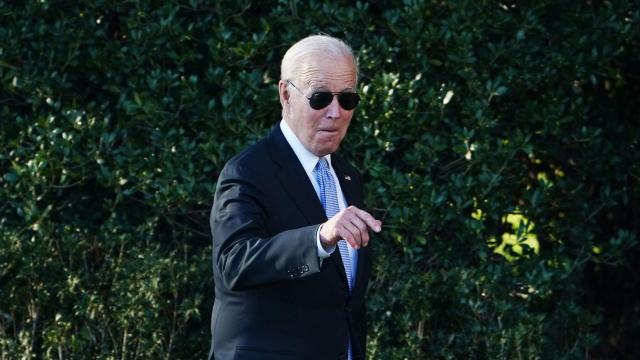Addressing world leaders at the United Nations climate conference in Glasgow earlier this month, President Joe Biden declared this to be a “decisive decade in which we have an opportunity to prove ourselves” on climate. Less than a week after the end of that UN meeting, the Biden administration will hold the largest oil and gas sale in history.
“We only have a brief window before us to raise our ambitions and to raise to meet the task that’s rapidly narrowing,” Biden said at climate talks two weeks ago. “This is a decisive decade in which we have an opportunity to prove ourselves.”
The scientific consensus is clear that to avoid the worst impacts of climate change, we need to end all new oil and gas exploration by next year. But the lease sale, which was first designed by the Trump administration, could lock up to 80 million acres in the Gulf of Mexico into oil and gas development for decades to come. According to the federal government’s analysis, around 1.1 billion barrels of oil and 4.4 trillion cubic feet of natural gas could be developed as a result of this sale. All this fossil fuel, the Centre for American Progress calculated, could emit 723 million metric tons of carbon dioxide. The drilling leases for sale also include areas home to chemical waste dumped into the Gulf, adding another layer of environmental catastrophe in waiting.
“It’s just mind-boggling,” said Kristen Monsell, an attorney at the Centre for Biological Diversity. “I don’t know why they’re doing this.”
One of Biden’s first acts in office in January was to put a pause on the federal oil and gas leasing program. Importantly, the pause wasn’t intended to be a ban. Rather, it was designed as a period for the Interior Department to assess the lease sale program and its climate impacts. And there’s good reason to question the validity of the leasing program. Analyses show that the oil and gas industry has basically been hoarding federal leases, using just 23% of the current offshore leases it holds. The Trump administration’s attempts to sell off 78.1 million acres in the Gulf of Mexico in 2018 only resulted in a sale of 1% of those public lands.
But even though they’re basically rolling in unused land and ocean leases, the oil and gas industry was not into being told by Biden that it wasn’t going to be able to access any more, even temporarily. To date, there have been a total of four legal challenges, including one filed by industry trade groups led by the American Petroleum Institute. A group of 14 Republican attorneys general and governors also challenged the pause. (Not that industry fingerprints weren’t all over that lawsuit: The Centre for American Progress found that oil and gas interests gave $US4.5 ($6) million in campaign money to each of those attorneys general’s and governors’ campaigns.)
That lawsuit’s efforts paid off. In June, a Trump-appointed judge sided with the states and blocked the pause, ruling that Biden needed Congress to approve any sort of stop on lease sales.
It may seem that this ruling is forcing the administration’s hand. But legal experts say that it doesn’t force Biden’s hand to restart the leasing program. Several environmental groups filed a challenge against the Bureau of Ocean Management (BOEM) — which governs lease sales — in September alleging that Wednesday’s lease sale relies on improper modelling that doesn’t properly take climate change into account.
June’s ruling “certainly doesn’t compel BOEM to hold [this lease sale] unlawfully and in violation of environmental laws,” said Monsell. “But that’s exactly what they’re doing here, relying on outdated environmental analyses despite a slew of information showing the existing analyses are woefully inadequate.”
The Interior Department will be offering three more lease sales, including one in the sensitive Cook Inlet in Alaska, later this year. The way the underlying laws governing the lease sale program work give BOEM “broad authority” to forgo specific lease sales, Monsell explained. The agency could have sat out the lease sales on the docket this year by conducting analyses to defend their decision to not hold them. Deciding not to hold lease sales, including the one scheduled in the Gulf, may have been met with more suits. But “being afraid of lawsuits from industry is not the bold leadership we need to address the climate crisis,” Monsell said.
The Biden administration has marketed itself as the most progressive in U.S. history when it comes to climate. It’s true that it has done some good work on the domestic front, but its fossil-fuel-friendly diplomacy at the UN meeting and this lease sale both emphasise the inescapable fact that the U.S. is the world’s largest oil and gas producer — and that those in power are choosing to side with polluters and profit, even as the clock keeps ticking on climate.
